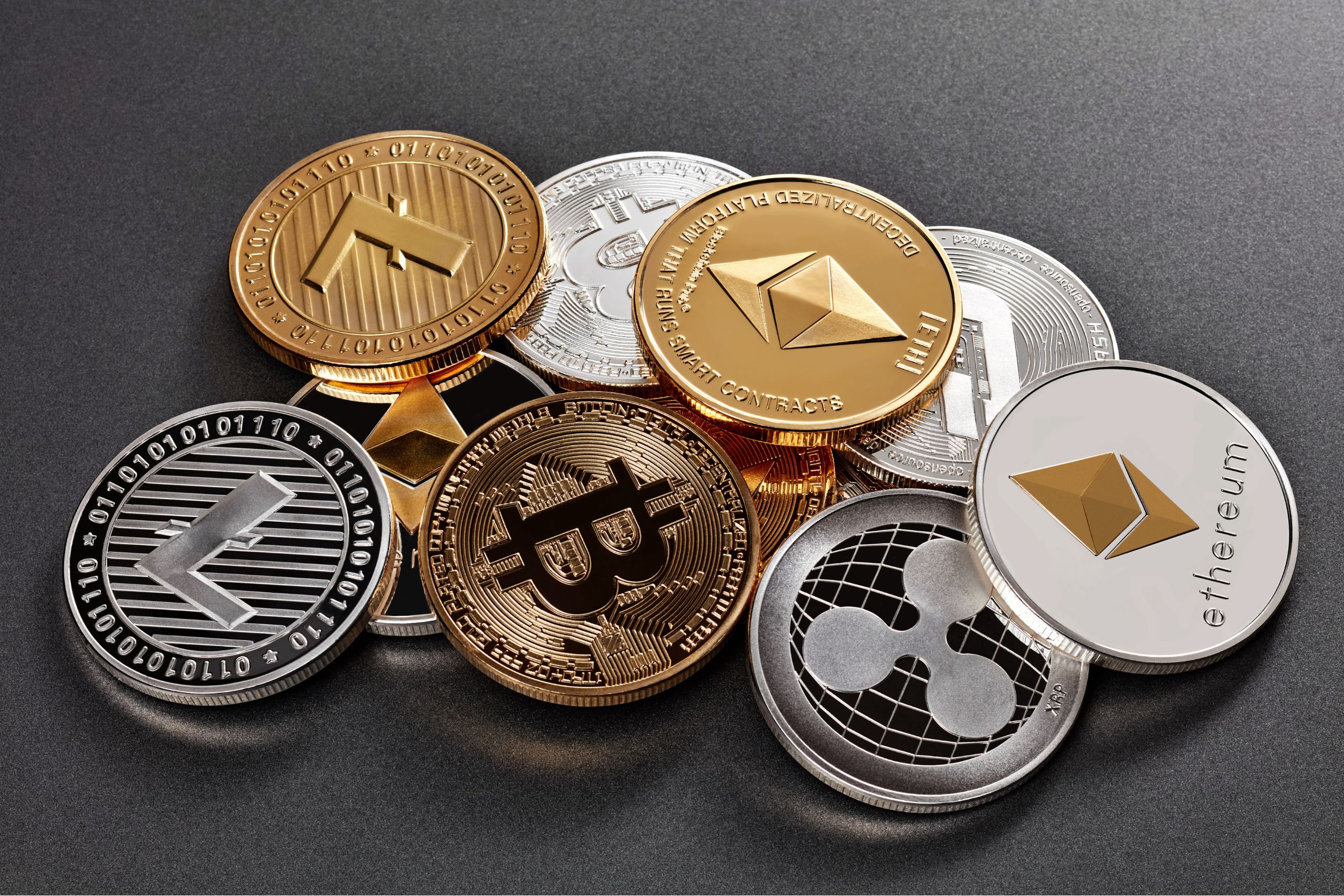Crypto News: Stay Updated On The Latest Trends And Developments
Welcome to Ovre! Are you interested in the world of cryptocurrencies and want to stay up to date with the latest trends and developments? With the rapidly evolving nature of the crypto market, it’s crucial to stay informed to make informed decisions. From new technologies to regulatory changes, being aware of what’s happening in the crypto space can greatly impact your investment strategies.
The world of cryptocurrencies has gained immense popularity and attention in recent years. From the rise of Bitcoin to the emergence of numerous altcoins, the crypto market has become a hotbed of innovation and excitement. However, with so much happening in this fast-paced industry, it can be challenging to keep track of everything on your own.
If you want to navigate the world of cryptocurrencies effectively, staying updated on the latest trends and developments is essential. Whether you’re a seasoned investor or just starting to dip your toes into the crypto waters, having access to accurate and timely information can make all the difference. In this article, we will explore why staying informed about crypto news is crucial and how it can help you make informed decisions in this ever-changing landscape.
What is Cryptocurrency?
Cryptocurrency is a digital or virtual form of currency that uses cryptography for secure financial transactions, making it nearly impossible to counterfeit or double-spend. It operates independently of a central authority, such as a government or bank, and is decentralized, meaning it is not controlled by any single entity. Cryptocurrencies use blockchain technology to achieve transparency, decentralization, and immutability. This type of currency has become increasingly popular in recent years and has the potential to revolutionize the way we think about and use money.
The Benefits of Staying Informed About Crypto News
Staying informed about cryptocurrency news is essential for anyone involved in the market. Regularly reading reputable financial news websites, following official channels of cryptocurrency exchanges, and keeping up with expert analyses can provide valuable insights into market updates, regulatory developments, and advancements in blockchain technology.
By staying informed, individuals can make more informed investment decisions, manage risks, and maintain financial stability. Awareness of regulatory developments can help anticipate potential impacts on the market, and staying updated on advancements in blockchain technology can provide opportunities for early adoption of innovative solutions.
Staying informed about cryptocurrency news can also help individuals stay ahead of market trends, identify potential investment opportunities, and avoid potential pitfalls. By staying informed, individuals can stay ahead of the curve and make well-informed decisions in the fast-paced and evolving world of cryptocurrency.
How to Stay Updated on the Latest Trends and Developments
One of the best ways to stay updated on the latest trends and developments in the crypto industry is to rely on reliable financial news websites, such as Ovre, Reuters, Bloomberg, and CNBC. These platforms often provide in-depth analysis and real-time updates on market movements, regulatory changes, and technological advancements. It’s also essential to keep an eye on cryptocurrency exchanges’ official channels, where they often share news, updates, and announcements directly from the source.
Following expert analyses from reputable industry professionals and research firms can also provide valuable insights into market trends and potential future developments. Additionally, it is crucial to stay informed about regulatory developments in your country and internationally, as regulations can significantly impact the market. Lastly, staying updated on improvements in blockchain technology and how they might affect Bitcoin’s usability and value is essential for understanding the long-term potential of the industry. By staying informed on these key aspects, investors and enthusiasts can make more informed decisions and stay ahead of the curve in the ever-evolving world of cryptocurrency.

Current Trends in the Crypto Space
The crypto space is rapidly evolving, with new trends and innovations constantly reshaping the industry. From the rise of decentralized finance (DeFi) and non-fungible tokens (NFTs) to the growing acceptance of cryptocurrencies by mainstream institutions, the current landscape of the crypto space is both dynamic and diverse.
Digital Assets and Digital Currency
Digital assets and digital currency are anticipated to be profoundly impacted by trust, regulation, and innovation, according to PwC’s 2023 Digital Asset Predictions. Trust will play a critical role in the widespread adoption of these assets, as individuals and businesses will need assurance in the security and reliability of digital currencies. Regulation is also expected to evolve to accommodate the growing digital asset market, with advancements in policies and guidelines to mitigate risks and foster investor confidence. Innovation will drive the development of new digital asset technologies, shaping the future of the digital economy.
The transformation of the digital and physical economy is inevitable as digital assets gain prominence. It is crucial for businesses and policymakers to craft strategies that align innovation with trust to capitalize on the potential benefits of this transformation. Advancements in regulations are expected to address the challenges of establishing a comprehensive and global regulatory framework for digital assets, bridging the gap between traditional financial systems and the evolving digital landscape. Ultimately, the synergy of trust, regulation, and innovation will define the future trajectory of digital assets and currency.
Crypto Market and Crypto Space
The cryptocurrency market has experienced significant growth and development in recent years, with a surge in the adoption of digital currencies and blockchain technology. However, this growth has also attracted increased regulatory scrutiny and legal challenges. Regulatory changes in various countries have impacted the crypto market, with new laws and guidelines being introduced to address concerns such as money laundering and investor protection.
One of the key developments in the crypto space is the creation of the global crypto exchanges database, which aims to transform crypto regulation by providing a comprehensive platform for monitoring and regulating digital asset exchanges. This database will help regulators to track and oversee cryptocurrency transactions and ensure compliance with relevant laws.
Regulation is crucial for the cryptocurrency industry as it provides a framework for investor protection, market stability, and legal certainty. Key considerations for investors in light of new regulations include understanding the impact of regulatory changes on their investments, being mindful of market manipulation, and assessing potential risks associated with the evolving legal landscape.
Crypto Exchanges and Bitcoin ETFs
Crypto exchanges play a critical role in relation to Bitcoin ETFs as they provide a platform for investors to trade in cryptocurrency. These exchanges allow investors to buy, sell, and exchange various cryptocurrencies, including Bitcoin, with other digital assets or fiat currencies.
Investors can use these exchanges to trade in cryptocurrency by creating an account, depositing funds, and then buying and selling cryptocurrency at their convenience. The process is similar to trading stocks on traditional stock exchanges, but with the added benefit of being able to trade 24/7.
Some popular crypto exchanges include Coinbase, Binance, Kraken, and Bitfinex. These exchanges offer features such as a wide variety of cryptocurrencies to trade, advanced trading tools, low trading fees, and strong security measures to protect investors’ assets.
In terms of connecting to Bitcoin ETFs, some crypto exchanges may offer the ability for investors to directly trade in Bitcoin ETFs, while others may provide a platform for investors to buy and hold Bitcoin, which can then be used to invest in Bitcoin ETFs through traditional brokerage accounts.
Overall, crypto exchanges play a crucial role in providing investors with the opportunity to trade in cryptocurrency and potentially gain exposure to Bitcoin ETFs.
Market Capitalization and Price Rally
The recent Bitcoin price rally has been closely linked to the increase in market capitalization. As the price of Bitcoin has surged, its market cap has also grown significantly. Catalysts driving this uptrend include the anticipation of the approval of a Spot Bitcoin ETF, which has sparked increased demand for BTC. Furthermore, institutional investors have shown growing interest in Bitcoin, further contributing to the rise in demand.
Market capitalization reflects the current value of Bitcoin, and factors contributing to the rise in demand for BTC include the anticipation of Spot Bitcoin ETF approval and increasing interest from institutional investors. Analysts have projected potential price targets, including a rally to $45,000 and the possibility of reaching $50,000 in the ongoing cycle.
As the Bitcoin price rally continues, it is important to monitor market capitalization as a key indicator of the cryptocurrency’s value. With potential future catalysts and increasing institutional interest, the price of Bitcoin could continue to climb, potentially reaching the projected price targets in the near future.
Trading Volume in Financial Markets
Trading volume in financial markets refers to the total number of shares, contracts, or units of a particular asset that are traded during a specific period. It is a key indicator of market activity and plays a significant role in assessing market sentiment and demand for assets.
High trading volume is often seen as a sign of strong market interest and demand for a particular asset. For example, in the case of cryptocurrencies, an increase in trading volume for a specific cryptocurrency such as Bitcoin or Ethereum can indicate growing popularity and demand for those digital assets. This can be driven by factors such as new developments in the industry, positive news coverage, or changing market trends.
On the other hand, low trading volume may signal a lack of interest in an asset, potentially indicating a lack of demand and market sentiment. Traders and investors often use trading volume as a way to gauge market activity and make informed decisions about buying or selling assets.
Cryptocurrency Industry Overview
The cryptocurrency industry is currently experiencing rapid growth and widespread adoption, with a surge in market capitalization and a rising number of technological advancements. However, the industry is also heavily influenced by an evolving regulatory landscape.
In recent years, governments and financial institutions have increased their efforts to regulate cryptocurrencies, aiming to address potential security risks and protect investors. These regulations have had a significant impact on market trends and the overall stability of the industry.
Despite these challenges, the cryptocurrency market continues to break new ground, with recent milestones including record-high market capitalization and increased investor interest. As we look ahead to 2024, the industry is expected to see continued growth, driven by technological advancements such as decentralized finance (DeFi) and non-fungible tokens (NFTs). Additionally, with more clarity on regulatory frameworks, the industry is poised for further mainstream adoption and integration with traditional financial systems.
Overall, the future outlook for the cryptocurrency industry is optimistic, with the potential for continued market expansion, technological innovation, and a more defined regulatory environment.
Getting Started with Cryptocurrencies
Cryptocurrency is a rapidly growing and evolving market that has become increasingly popular in recent years.

Understand the Different Types of Crypto Assets
1. Cryptocurrencies: These are digital or virtual currencies that use cryptography for security and operate on decentralized networks based on blockchain technology. They are primarily used as a medium of exchange and a store of value, with examples including Bitcoin, Ethereum, and Litecoin.
2. Non-Fungible Tokens (NFTs): These digital assets represent ownership or proof of authenticity of unique items or content, such as art, collectibles, music, videos, and more. NFTs are bought and sold on various online marketplaces and are popular among collectors and creators for their scarcity and provenance.
3. Security Tokens: These are digital tokens that represent ownership of real-world assets, such as company shares, real estate, or commodities. Security tokens are regulated and often subject to securities laws, providing investors with a legal claim to the underlying assets. They are used to tokenize traditional financial instruments, making them more accessible and tradeable.
4. Utility Tokens: These tokens provide access to a product or service within a specific ecosystem or platform. They are often used for crowdfunding projects through Initial Coin Offerings (ICOs) and can be exchanged for goods or services within their respective networks.
All these crypto assets have unique use cases in the current market, serving as alternative investments, digital collectibles, and platforms for decentralized applications and financial instruments.
Assessing Your Risk Tolerance When Investing in Cryptos
When investing in Bitcoin and other cryptocurrencies, it’s important to consider the various risks associated with this highly volatile market. These risks include the potential for significant price volatility, regulatory uncertainty, security concerns such as hacking and theft, lack of consumer protections, market manipulation, and technological risks.
These risks can impact your risk tolerance and financial decision-making by causing increased anxiety and uncertainty about the stability and potential returns of your investment. It may lead to a more conservative approach to investing or even avoiding the crypto market altogether.
Diversification is crucial in mitigating these risks. By spreading your investments across different asset classes, including traditional stocks and bonds, you can reduce the impact of crypto market volatility on your overall portfolio. Additionally, conducting thorough research before entering the crypto market is essential to understanding the risks involved and making informed investment decisions.
Ultimately, assessing your risk tolerance is key when investing in cryptocurrencies. It’s important to understand and evaluate the potential risks and their impact on your financial goals before making investment decisions in the crypto market.
Researching the Different Exchange Platforms for Trading Cryptos
Some of the well-known exchange platforms for trading cryptocurrencies include Binance, Coinbase, Kraken, Bitfinex, and Gemini. Binance is a global platform with a wide range of cryptocurrencies, high liquidity, and advanced trading options. Additionally, Binance offers staking and savings options for users to earn passive income. Coinbase, on the other hand, is popular for its user-friendly interface, strong security measures, and insurance protection for digital assets. Kraken is known for its institutional-grade security, high liquidity, and diverse range of trading pairs. Bitfinex offers margin trading, advanced order types, and high liquidity, making it a preferred platform for experienced traders. Gemini is a regulated exchange platform, providing high security and insurance coverage for digital assets, as well as a user-friendly interface.
Each platform has its unique selling points. Binance stands out for its extensive range of cryptocurrencies and advanced trading options, while Coinbase is known for its user-friendly interface and insurance protection. Kraken’s institutional-grade security and high liquidity make it an attractive choice for institutional investors. Bitfinex offers margin trading and advanced order types for experienced traders. Lastly, Gemini is a regulated platform with high security measures and insurance coverage for digital assets.
Exploring Different Investment Strategies for Maximum Returns
One investment strategy for diversifying a portfolio is allocating a percentage of funds to Bitcoin. This cryptocurrency has the potential for high returns, but it also comes with high volatility and regulatory risks.
Investing in traditional assets like stocks and bonds is another strategy. Stocks offer the potential for long-term growth, while bonds provide income and stability. However, they both carry market risk.
Exploring alternative investments like real estate or commodities is also a viable option. Real estate can provide steady income and potential for appreciation, but it comes with liquidity and maintenance risks. Commodities, such as gold or oil, can provide diversification benefits, but they are also subject to market fluctuations.
To implement and manage a diversified investment portfolio, it’s crucial to assess risk tolerance, set clear investment goals, and regularly rebalance the portfolio to maintain the desired asset allocation. Diversification can help to reduce overall portfolio risk and potentially maximize returns in the long run. However, it’s essential to carefully consider the potential benefits and risks of each investment strategy before making any decisions.
Diversifying Your Portfolio with an Array of Coins
1. Ethereum (ETH): Ethereum is a decentralized platform that enables smart contracts and decentralized applications (dApps) to be built and operate without any downtime, fraud, control, or interference from a third party. It offers diversification potential due to its different use cases compared to Bitcoin, with a focus on enabling programmable contracts and applications.
2. Ripple (XRP): Ripple is both a platform and a currency, known for its digital payment protocol and network. The unique features of Ripple lie in its consensus ledger and its focus on enabling fast and low-cost international money transfers, making it a potential diversification choice for investors interested in the fintech aspect of the cryptocurrency market.
3. Litecoin (LTC): Litecoin is a peer-to-peer cryptocurrency that enables instant, near-zero cost payments to anyone in the world. Its unique features include faster transaction confirmation times and a different hashing algorithm than Bitcoin, providing diversification benefits for investors interested in the potential for faster and cheaper transactions.
4. Cardano (ADA): Cardano is a blockchain platform built on a scientific philosophy and peer-reviewed research. Its unique features include a strong focus on sustainability, scalability, and transparency, offering diversification potential for investors seeking exposure to projects with a strong technological and research-driven approach.
5. Polkadot (DOT): Polkadot is a multi-chain blockchain platform that enables different blockchains to transfer messages and value in a trust-free fashion. Its unique features include interoperability and scalability, providing diversification potential by offering exposure to a project focusing on solving the challenges of the current blockchain ecosystem.
Adding an array of coins to an investment portfolio can provide a broader exposure to the cryptocurrency market, as each coin offers different use cases and technological approaches. This diversification can potentially reduce risk by spreading exposure across different projects, reducing the impact of any single coin’s performance on the overall portfolio. By investing in multiple cryptocurrencies, investors can benefit from potential growth opportunities in various segments of the market while managing risk through diversification.

Conclusion
In conclusion, staying informed about the latest trends and developments in the world of crypto is essential for the success of any cryptocurrency investor. By keeping up with crypto news, you can better understand how digital currencies are used in the real world and what factors are driving their value. Crypto news can also help you make decisions about which projects to invest in or avoid. Finally, by understanding the underlying technology behind cryptocurrency, investors can make more informed decisions about which digital assets to invest in and when. As crypto technology continues to evolve, it is important for investors to stay abreast of all the latest developments and news related to this exciting asset class.










